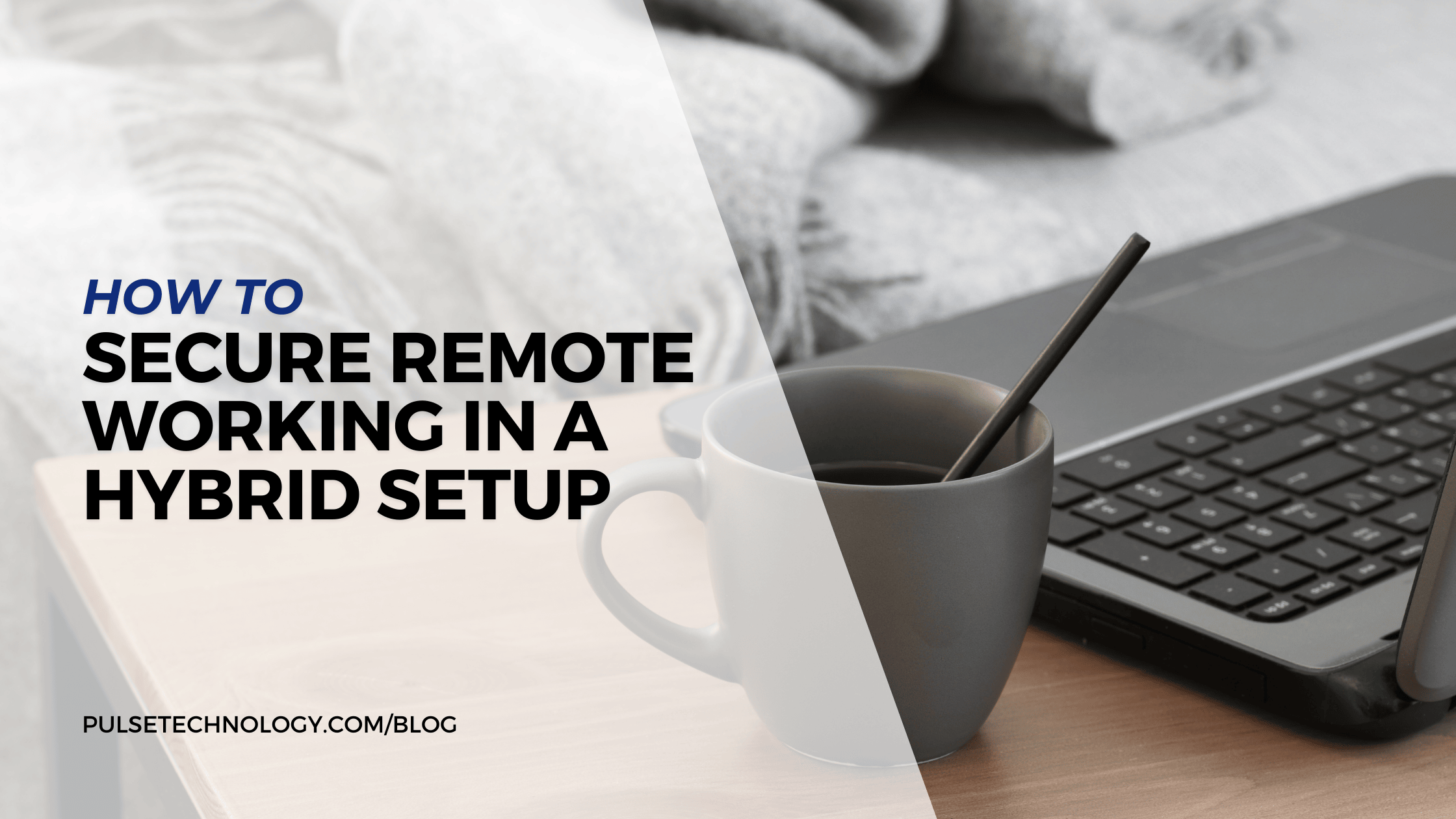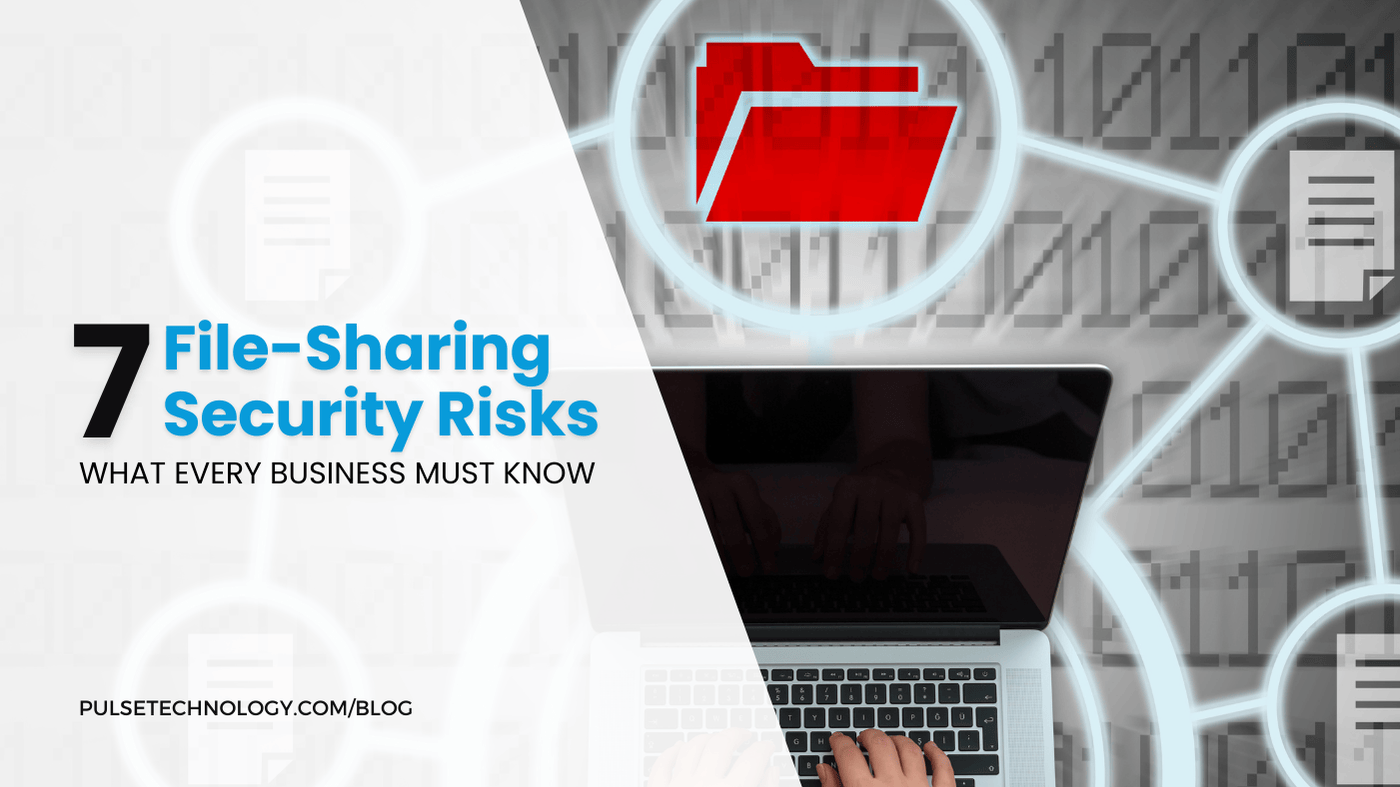How a VPN Can Help You With Your Remote Work Business Structure
The shift to remote work settings has transformed how people approach their jobs, making the Internet essential for nearly every aspect of work. However, this transition has also increased the risk of cyber attacks. With more individuals accessing sensitive information from various locations, the lines between privacy and vulnerability have never been more blurred.
Virtual Private Networks (VPNs) have emerged as an essential tool to safeguard internet connections. But it's not just about protection; there are numerous additional benefits that a VPN can provide, especially for remote work. In this blog, we will explore the top benefits of a VPN in remote work and how it can help heighten cybersecurity for businesses.
What is a VPN and How Does it Work?
A VPN is a service that provides an extra layer of security when navigating the Internet. It works by creating a private, encrypted tunnel between your company’s devices and the Internet, making business data and sensitive information much harder to track or steal.
Connecting to the internet through a VPN reroutes your internet traffic through a secure server in another location. This masks your remote employees’ IP address, making it look like they’re browsing from the server's location rather than their own. Data shows that 80% of people use VPNs for increased security.
Additionally, a VPN doesn’t depend on a particular network. Once a VPN is installed on a device (desktop, laptop, tablet, smartphone), it can be used over any network.
When Do You Need to Use a VPN Protection?
While VPNs are a popular tool for enhancing online security, many businesses are unsure about when and why they should incorporate them into their cybersecurity plan. Here’s how you can use VPN protection for remote work:
- Data Security: When your remote workers need to access sensitive company data or systems.
- Secure Access to Company Resources: If your business has internal systems, servers, or applications that require secure access.
- Compliance Requirements: If your business needs to follow specific regulatory requirements (e.g., GDPR, HIPAA).
- Public Wi-Fi Risks: When your employees connect to public or unsecured Wi-Fi networks.
- Geographical Restrictions: If your business operates in regions with internet restrictions or if remote workers need to access content restricted by location.
Benefits of a VPN for Remote Work
With remote work becoming the norm, keeping your team’s online safety and productivity in check is more important than ever. To highlight why this is important, here are 12 benefits of a VPN for remote work:
1. Secure Remote Connections
Aside from their homes, remote workers can work from various locations such as coffee shops, co-working spaces, libraries, or even while traveling. When working in these places, your employees often connect to the Internet through public Wi-Fi. However, these public Wi-Fis are often less secure and more vulnerable to cyberattacks.
A VPN encrypts your internet connection, making it almost impossible for anyone to intercept your data. In fact, 50% of people use a VPN on public Wi-Fi to protect their data from potential threats. For example, if your remote employee is working from a café, a VPN ensures their work remains private, even if someone tries to snoop on their connection.
2. Access Company Resources Safely
Many companies have internal systems and files that are only accessible from within the office network, often requiring employees to use a VPN. With a VPN, you can create a secure connection to your company's network, allowing your remote workers to access these resources as if they were physically in the office. So, if your employees need to use a company-specific database or access proprietary software that’s restricted to your office IP addresses, a VPN will let them connect seamlessly and securely.
3. Protect Sensitive Information
Preventing data leaks can be challenging, especially when each employee is on a different network. If your employees often deal with sensitive data, such as client records or confidential business information, a VPN helps safeguard their work data by keeping it encrypted from third-party monitoring until it reaches your company’s internal network.
4. Bypass Geo-Restrictions
If your company has a team working from various locations, some tools or content might be restricted based on geographic regions. A VPN can help overcome these restrictions. For instance, if your business relies on tools or content that’s only accessible in the U.S., a VPN allows your remote workers to connect as if they’re there, regardless of their actual location. This ensures that your team always has access to everything.
5. Boost Privacy Protection
Without a VPN, advertisers, websites, and even their Internet Service Provider (ISP) can track your remote employees' browsing activities, leading to targeted ads, data profiling, and potential privacy breaches. A VPN helps enhance their online privacy by masking their browsing habits, IP address, and location.
6. Avoid Bandwidth Throttling
If your remote workers’ ISP detects high-bandwidth activities like downloading large files or P2P file sharing, it might slow down their connection. This throttling limits their usage of their ISP’s network capacity, even if they have a high-speed internet connection. Since bandwidth throttling can be triggered by the sites you visit or the activities you perform, a VPN prevents your ISP from seeing the data exchanged with your device, thereby stopping them from throttling it.
7. Improve File-Sharing Security
Sharing files with colleagues is often necessary in remote work. With VPN, files can be securely shared over long periods without worrying about data being stolen or revealed. So, if you're sending a detailed project report or confidential client data, the VPN's encryption prevents unauthorized parties from accessing these files during transmission.
8. Enhance Remote Work Flexibility and Productivity
VPNs can significantly enhance the flexibility of your remote work setup. It lets your team connect securely to the company network from anywhere, so they can set up their workspaces however they like without worrying about security. Additionally, using a VPN ensures that your employees won’t face slowdowns due to their specific activities, helping your remote team maintain efficient workflows and productivity.
9. Encrypt Communication
Besides protecting your internet connection, a VPN also encrypts your communication channels, such as emails and chat messages. This ensures that even if someone intercepts these communications, they won’t be able to read the contents.
10. Safeguard Against Phishing
Many VPNs come with built-in features that help detect and block phishing attempts. Phishing scams are fraudulent attempts to deceive individuals into revealing sensitive information, such as passwords or financial details, by pretending to be a legitimate entity. For example, if a remote worker receives an email that looks like it’s from a bank or a colleague asking for login details, a VPN with phishing protection can block these scams and keep their credentials safe.
11. Strengthen Endpoint Security
With remote workers using various devices to access company resources, endpoint security is essential as their personal devices can be a security risk. A VPN allows the protection of numerous devices with a single account. So, whether you are using a work laptop, tablet, or smartphone, your connection is encrypted and protected from unauthorized access, reducing the chances of a cyberattack targeting vulnerable endpoints.
12. Prevent Unauthorized Access to Cloud Storage
Remote teams frequently depend on cloud-based platforms to store and manage critical business data. However, accessing these resources from unsecured networks without proper security can expose sensitive information to cyber threats. A VPN adds a protective layer by encrypting connections to your cloud storage, ensuring that only authorized personnel can access company data. So, even if your employees are working from unsecured networks, their access to cloud files and resources remains protected.
Are there Challenges and Limitations to Using a VPN?
While VPNs offer significant benefits, they do come with challenges. Here’s a look at some of the key challenges you might face:
- Not a Substitute for Antivirus Software: While a VPN helps protect your employees’ privacy, it doesn’t replace the need for antivirus software. Without it, your computer is still at risk from viruses. Luckily, some VPN services, such as NordVPN and Surfshark, offer antivirus protection, so you can cover both bases.
- No 100% Anonymity: Even though VPNs encrypt your internet traffic, your company’s VPN provider itself can still log your browsing activity. This means your privacy relies on how trustworthy your VPN provider is. Reputable VPN companies will clearly outline what information they collect in their terms and conditions, and the best ones only keep basic information like your email address and payment details. So, make sure to do your research before picking a VPN!
- Access Issues With Some Sites: Some websites and streaming services block VPN traffic to enforce regional restrictions. If your team relies on access to certain services, ensure your chosen VPN supports them, or be prepared for possible workarounds.
- Possible Slowdowns: Using a VPN can sometimes slow down your connection. This happens because encrypting your data takes time, and the data has to travel further than usual. This can vary between VPNs, so it’s a good idea to review the speed and performance specs of a VPN before signing up.
- Complex Configuration: VPNs can be complex, especially if your team is unfamiliar with networking terms or networking technology in general. It's best to choose a VPN provider with strong support services and multiple resources available to help you and your team set it up. Without proper configuration, your system remains vulnerable to malware and hackers.
- Cost Considerations: Quality VPNs usually come with a subscription fee. Free VPNs can have limitations and might not protect your data well. Paying for a reliable VPN often means better security and performance, which is worth considering.
While using a VPN may come with some challenges and limitations, the benefits far outweigh these drawbacks. Ultimately, the peace of mind and protection you gain from using a VPN make it well worth considering as part of your overall cybersecurity plan.
How Does a VPN Work Within Your Entire Cybersecurity Plan?
Aside from the benefits of a VPN for remote work, it's essential to recognize that it is just one piece of your entire cybersecurity plan. Let's take a look at how a VPN can work within your cybersecurity framework below:
- Risk Assessment: Risk assessment is key for tackling the vulnerabilities of remote work. A VPN helps by offering insights through logs, showing remote access patterns, and helping to identify potential risks associated with remote connections. This information supports your business's risk assessment process by highlighting areas where additional security measures may be needed.
- Security Policies and Procedures: Secure remote work requires guidelines such as defining how data should be handled and accessed remotely, protocols for acceptable use, and procedures for dealing with security incidents. A VPN supports these guidelines by restricting access to only authorized users and encrypting data, ensuring everything follows your established security procedures.
- Employee Training: Human error often contributes to cybersecurity breaches. While a VPN itself doesn’t provide cyber training, it supports the implementation of security best practices. Offering a secure platform for remote work reinforces the importance of following security protocols and guidelines taught during employee training.
- Emergency Response Plan: A Cyber Emergency Response Plan (CERP) is a detailed guide that describes the steps your business should take if faced with a cyberattack. It includes procedures for identifying, containing, and recovering from such incidents. The data and logs from the VPN help you analyze what happened during the incident, understand how the attack unfolded, and support efforts to get things back to normal.
- Compliance and Regulations: Adhering to legal and regulatory requirements is essential for protecting data privacy and avoiding legal trouble. This is even more important with remote work that spans different jurisdictions. A VPN supports compliance by encrypting data during transmission and maintaining logs of remote access, which helps prove that you’re following data protection regulations.
- Technology Solutions: A VPN enhances your multi-layered security approach by providing encrypted connections that complement firewalls, protecting data in transit alongside antivirus software, and adding privacy to user interactions with multi-factor authentication. This combined approach strengthens your defenses and helps keep your business’s data safe from cyberattacks.
Safeguard Your Remote Workers With Pulse Technology’s Cybersecurity Solutions!
As cyber security risks become heightened, employers and employees must take as many precautions as possible, especially when working remotely.
To stay ahead of the new malware threats emerging each day and ensure the safety of your business data, Pulse Technology offers advanced cybersecurity solutions tailored to the needs of businesses. Our Secure Access Service Edge (SASE) provides a cutting-edge approach to VPN connectivity, keeping all data encrypted and secure for your remote workforce, even on public Wi-Fi. Contact us now, and let us help you deliver robust protection for your remote teams!
In addition to installing antivirus software on devices and regularly backing up critical data, a VPN can provide an extra layer of security.




